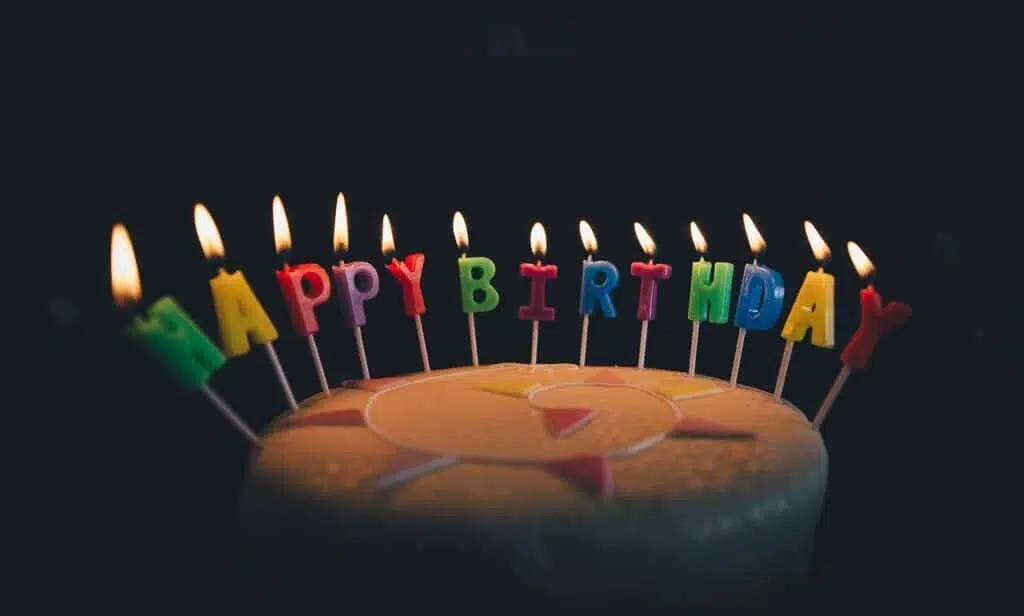probably one of the most well-known songs in the world, as it is sung on birthdays regardless of country or ethnicity

copyrighted, intellectual property, patent
“Happy Birthday To You” is probably one of the most well-known songs in the world, as it is sung on birthdays regardless of country or ethnicity. In the Guinness Book of Records, a collection of unusual records from around the world, “Happy Birthday to You” is recorded as the most sung song in English.
It is a very well-known song, but very few people know that it is a copyrighted song. Whenever your readers hear “Happy Birthday To You” on television or in a movie, the broadcaster or producer pays a copyright fee to Time Warner, who owns the copyright. A lawsuit was filed in 1935 as to whether the song was publicly owned or copyrighted.
The original song for “Happy Birthday To You” was a song with the same melody, but with different lyrics, titled “Good Morning to All.” The song’s lyricist/composer was Mildred and a sister named Patty. Mildred was a kindergarten teacher and Patty was a pianist and composer (some historical sources suggest that Patty was also a kindergarten teacher). In 1889, the two sisters started making a musically fun song together because the syllables are easy for children to sing along with. You will publish a book. “Good Morning to All” is popular because it has easy syllables, so children can easily remember it, and it is also musically fun. Fortunately, the two sisters had basic knowledge of copyright. Therefore, without filing a copyright application,
Later, as “Happy Birthday To You” began to become popular, there was a debate as to whether the original song “Good Morning to All” was created independently by the Mildred and Patty sisters, or whether they used existing notes. For example, in a song by Horace Waters published in 1858, there was a song called “Happy Greetings to All,” which had a very similar note, “Good Night to All” in 1858, “A Happy New Year to All” in 1875. It was claimed that the song “All” had very similar notes.
A key issue in copyright trials is whether the songs are “not only “substantially similar” but “nearly identical”. If that is the case, there is no originality, and the song without originality is not protected by copyright.
Some of the readers of this article may ask, “Then there was no ‘Happy Birthday Song’ back then?” Surprisingly, it’s only recently that they started throwing birthday parties. According to records, it wasn’t until the late 1830s that the affluent began to celebrate birthdays. The birthday party cakes we live in today don’t come out until the 1850s. Children’s birthday parties started between 1870 and 1920. So, it was quite recently, between 1915 and 1935, that the song “Happy Birthday to You” began to become popular. Therefore, it was not surprising that the case was filed in 1935.
Records show that “Happy Birthday to You” earned between $15,000 and $20,000 per year in the late 1940s and early 1950s. Profits continued to rise, and by the late 1990s they began to generate revenues of over $1 million per year. There is still a long period of time until copyright is guaranteed.
This column is talking about “Happy Birthday To You,” as the law is not always heavy and is closely related to our lives, but there is a lesson to be learned from this story. Even the readers of this column, even if it is a very trivial work, if it is a work of your own effort and creativity, you must register the copyright before publishing it.
If you have any additional questions about copyright, or if there is a law you would like our readers to know about, please do not hesitate to contact us at mail@songlawfirm.com. I will reflect that in my next column.